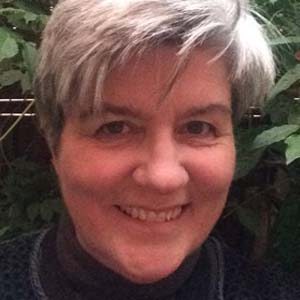Women account for only 29% of Australia’s STEM research workforce
Supporting diversity
Improving diversity in science beyond just gender.
In 2021, FLEET’s steps to improve women’s representation in physics have also expanded to wider definitions of diversity.
To maximise the effectiveness of our research team, and to improve diversity in Australian science, FLEET has added new Diversity Fellowships to complement the existing Women in FLEET Fellowships. This opens up our fellowships to a wider range of applicants from under-represented groups in Australian STEM.
Diversity in FLEET Fellowships are open to individuals from any group that is under-represented in Australian STEM, or who have experienced uncommon hardship. Examples include, but are not limited to applicants who:
- Identify as Aboriginal and/or Torres Strait Islander
- Have a disability or who cares for a person with a disability
- Identify as LGBTIQA+
- Are from a regional / remote area
- Are from a disadvantaged or low socio-economic background
- Are from a refugee background
- Have experienced uncommon hardship, which could include, but is not limited to experiences of domestic violence or debilitating health issues.
Both categories of Fellowship allow for improved flexibility in the location and type of position on offer. Rather than advertising highly-focused research roles with specific expertise criteria, which is standard in scientific recruiting and contributes to maintaining the status quo in gender balance and diversity.
Instead, Women in FLEET and Diversity Fellowships allow for applications from talented individuals whose research interests align with any research areas within FLEET, giving applicants the choice to nominate investigators they want to work with. The new Fellows may be experimental or theoretical, physicists, chemists or engineers, located at any of seven universities. The flexibility of offering whichever field suits the best applicants available allows the widest choice of applicants, ensuring FLEET will hire the best possible candidates.
The effectiveness of this broader search in allowing FLEET to find excellent researchers who may have been missed in previous, narrowly-targeted searches was confirmed by the remarkable increase in applications for previous Women in FLEET Fellowships. In the first round, FLEET received almost 70 applications – more women than the combined total from 14 previous, more-targeted searches.
Fellowships are available at Monash University, UNSW, RMIT University, Swinburne University of Technology, ANU, the University of Queensland, or the University of Wollongong.
In addition to Fellowships for postdocs, Diversity in FLEET scholarships are aimed at assisting higher degree by research students at the beginning of their science career.
Planning and implementing the Diversity in FLEET fellowships was a very significant project for members of the Centre’s Equity and Diversity Committee in 2021, including guidance from leaders in the Women in STEM Australia network.

The Diversity in FLEET Fellowship is the first of its kind. There are scholarships and small grants to support people in minority groups in STEM but not a postdoctoral fellowship.
Prof Jeff Davis FLEET Equity and Diversity Chair
Women in FLEET
The Women in FLEET Fellowships were introduced in 2019, to support Centre efforts to increase the percentage of women at early-career researcher (ECR) and associate investigator levels to above the relatively-low average in fields such as physics, engineering and materials science.
The Fellowships will have a significant impact on both the future careers of these women as well as on the future workforce. Two of the three Women in FLEET Fellows have secured academic positions at top research institutions in Europe.
Individual highlights for women in FLEET in 2021 include:
- One Fellow securing a tenure-track academic position in the Netherlands
- An ECR winning a prestigious research fellowship in Spain
- COO winning a scholarship from Women in Leadership Development, WILD for STEM, to train with the Australian Institute of Company Directors
- Four women in FLEET winning scholarships to participate in Women and Leadership Australia’s Leading Edge program.
With our Women in FLEET Fellowships, the Strategic Seed Grant Scheme and other strategies, the Centre has achieved 25% representation of women overall.
In addition, Women in FLEET scholarships for higher-degree by research students assist ECRs at the beginning of their science career.
An important aspect of Centres of Excellence is their capacity to change the culture of the way science is done. Learnings from the Fellowship design and implementation process have been shared with other research centres via a white paper.
Redressing historical disadvantages for women in physics provides many complex challenges, and our actions must cut across all of FLEET’s strategies and policies. Internal surveying of experiences and attitudes (see case study) helps maximise the chance of success for these changes.

Centres of Excellence can exhibit a high level of autonomy. Making change in an institution as big as a whole university can be glacial. But centres have demonstrated they can test ideas that the university may, over time, also be able to embrace.
Dr Megan Power Writing for ARC
